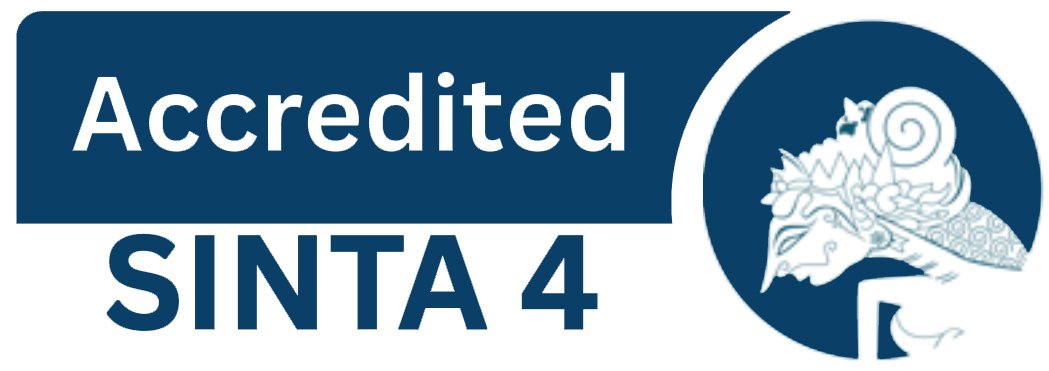FAKTOR-FAKTOR HASIL PEMAHAMAN KONSEP MATEMATIS DALAM PEMBELAJARAN MASA PANDEMI COVID-19
DOI:
https://doi.org/10.22460/p2m.v8i1p1-14.2226Abstract
Based on the results of interviews with fourth grade students, it was stated that they did not understand mathematics because they felt mathematics was a difficult subject. Then the parents added that they couldn't guide their children to do math assignments because they didn't understand the content of the lesson. In addition, students in answering the questions given by the teacher were not optimal. Online learning is also one of the causes of the less than optimal score results. This study aims to describe the results of understanding the mathematical concepts of fourth grade students at SDN 6 Bulungcangkring during the learning period of the Covid-19 pandemic. This study used a qualitative method with research subjects, namely 3 students from grade IV SDN 6 Bulungcangkring. Data collection techniques in this study used interviews, observations, and document studies to analyze the results of students' understanding of mathematical concepts. The results of this study are that MDA is a student who is able to meet the indicators of understanding students 'mathematical concepts, while SH and JS are able to meet the indicators of understanding students' mathematical concepts because they are able to provide the right answer and are able to write formulas according to the correct calculations. The conclusion in this study is that MDA does not have the ability to understand mathematical concepts while SH and JS already have the ability to understand mathematical concepts.
References
Afrillianto, M. (2012). Peningkatan Pemahaman Konsep dan Kompetensi Strategis Matematis Siswa SMP dengan Pendekatan Metaphorical Thinking. Jurnal Ilmiah Studi Matematika STKIP Siliwangi Bandung. 1 (2): 192-202.
Anita, I. (2014). Pengaruh Kecamasan Matematika terhadap Kemampuan Koneksi Matematis Siswa SMP. Infinity Journal. 3 (1): 125-132.
Arsiyanto, A., S, Wanabuliandari., & Nur, f. 2020. Pola Analisis Pemahaman Konsep Matematis dalam Pembelajaran Masa Pandemi Covid-19 pada Siswa Kelas IV SDN 6 Bulungcangkring Kudus. Skripsi.
Dewi, W. 2020. Dampak Covid-19 terhadap Implementasi Pembelajaran Daring di Sekolah Dasar. Jurnal Ilmu Pendidikan. 2 (1): 55-61.
Fajrie, N., Erik, A.I. & Retno. (2020). Faktor-faktor Pembentuk Karakter Disiplin dan Tanggung Jawab dalam Kegiatan Ekstrakurikulr Pramuka. Jurnal Prakarsa Pedagogia. 3 (1): 105-117.
Hadi, S. (2015). Pemahaman Konsep Matematika Siswa SMP Melalui Penerapan Model Pembelajaran Kooperatif Tipe Memeriksa Berpasangan. Jurnal Pendidikan Matematika. 3 (1): 59-66.
Lee, A. (2020). Wuhan Novel Corona Virus (Covid-19): Why Global Control is Challenging? Public Health, 179, A1-A2. DOI: 10.1016/J.PUHE.2020.02.001.
Moleong. (2007). Metodologi Penelitian Kualitatif. Bandung: PT Remaja Rosdakarya.
Murizal, A. 2012. Pemahaman Konsep Matematis dan Model Pembelajaran Quantum Teaching. Jurnal Pendidikan Matematika 1(1), 19-2.
Pangestu, A. (2015). Pengaruh Minat terhadap Hasil Belajar Matematika Siswa SMA Negeri 1 Uluiwoi Kabupten Kolaka Timur. Jurnal Penelitian Pendidikan Matematika. 3 (2): 17-26.
Utari, V. 2012. Peningkatan kemampuan pemahaman konsep melalui pendekatan PMR dalam pokok bahasan prisma dan limas. Jurnal Pendidikan Matematika, 1(1), 33-38.
Wanabuliandari, S. Sekar D.A., & Susilo, R. (2016). Implementasi Model EJAS Berbasis Mathematic Edutainment untuk Meningkatkan Prestasi Belajar dan Perilaku Kepedulian terhadap Lingkungan. EduMa. 5 (2): 34-41.
Yanti, R. (2020). Analisis Kemampuan Pemahaman Konsep Matematis Siswa SMP dengan Pembelajaran Daring. Jurnal Inovasi dan Riset Pendidikan Matematika. 1 (3): 245-256.
Yensy, N. (2020). Efektifitas Pembelajaran Statistika Matematika melalui Media Whatsapp Group Ditinjau dari Hasil Belajar Mahasiswa (Masa Pandemik Covid 19). Jurnal Pendidikan Matematika Raflesia. 5 (2): 65-74.
Yulia, P. (2017). Hubungan Disiplin Belajar dan Konsentrasi Belajar terhadap Hasil Belajar Matematika Siswa. Jurnal Phytagoras. 6(2): `00-`05.
Zhang, W., Wang, Y., Yang, L., & Wang, C. (2020). Suspending Classes Without Stopping Learning: China’s Education Emergency Management Policy In The COVID-19 Outbreak. Journal Of Risk And Financial Management, 13(3), 55.


















